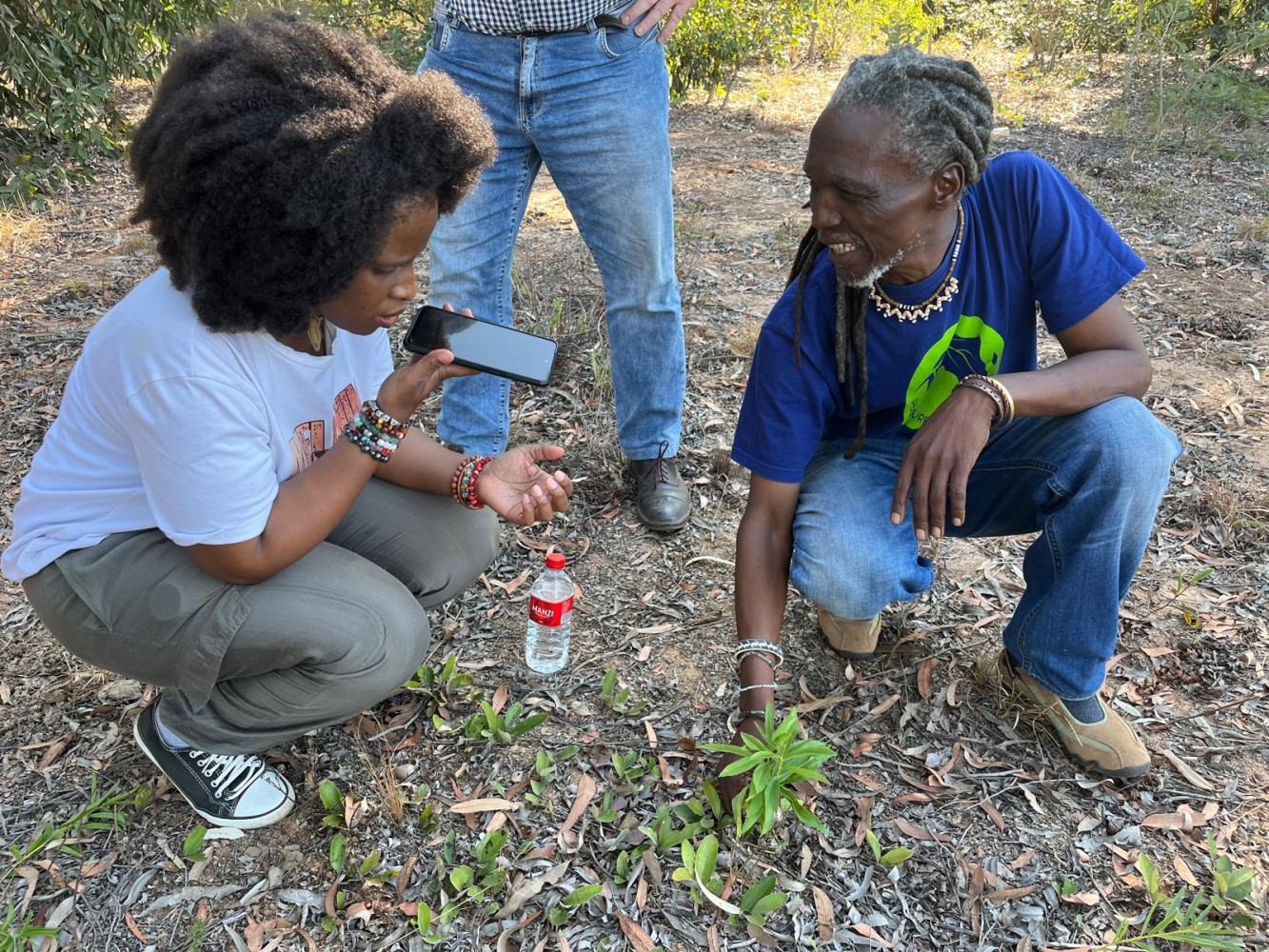Out in the Field: Project Biome in Mpumalanga (Ratanang Colab)
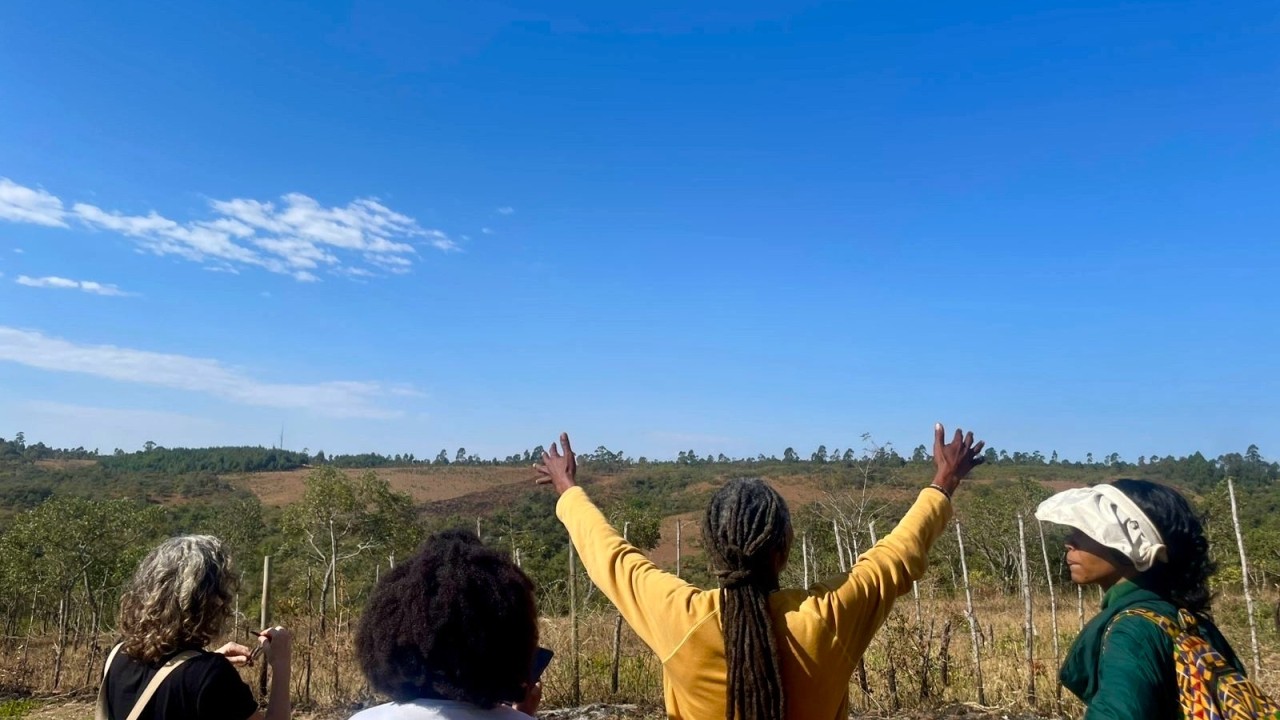
Author:
Project Biome
Date:
07.08.2025
This article was originally published on Project Biome's LinkedIn on July 17, 2025.
There are few greater joys than sitting under the learning tree of December Ndhlovu.
As a traditional leader, community organiser, environmental activist, and custodian of Indigenous Knowledge Sciences (IKS), December continues to inspire us with his deep reverence for the sacred bond between humanity and Nature. On our second field visit, we travelled to Bushbuckridge, about 40km (25 miles) south of Acornhoek, where December is primarily based. This region is home to a bold ecological vision that he has been nurturing for two years: Ratanang Colab.
After navigating a minor stretch of road construction, we arrived at a sweeping expanse of land overlooking the Injaka Dam. Though we had set off early, we came prepared to witness the incredible work December is spearheading with a diverse network of individuals, organisations, and institutions committed to agroecology and water conservation. Founded in 2023, Ratanang Colab is a community-driven project that teaches people how to grow organic food, rewild rivers, clear alien vegetation, and cultivate biochar.
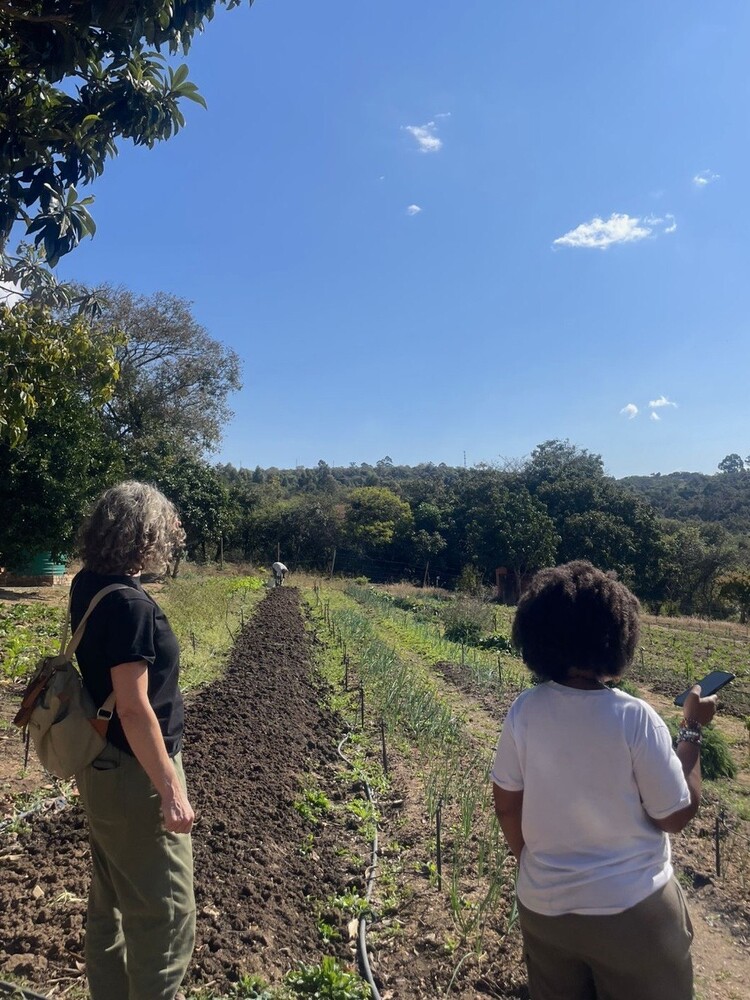
In the language Sesotho, ratanang means “love one another,” a fitting reflection of the collaborative spirit that shapes December’s work.
With support from realife Learning and Project Biome, Ratanang is poised to become an Agrihub for a bioregion facing some of the most pressing challenges of the climate crisis. As a mixed-production farm that will also support chicken enterprises, Ratanang offers a holistic response to the socioecological issues in Bushbuckridge, namely poverty, unemployment, inequality, biodiversity loss, polluted waterways, and degraded natural landscpes.
We were warmly welcomed by Mr. Mmola, the current custodian of the land, joined by several family members spanning multiple generations. This was a reminder of the intergenerational living that characterises many South African communities. As we moved through the farm, we reached a shed housing the biochar that December has been producing with the help of Philip Owen, founder of GeaSphere - Earth Matters and a strategic lead partner for the ReWild Mpumalanga project.
Produced through pyrolysis, a process involving the heating of biomass without oxygen, biochar has proven to enhance the quality of soil health, strengthening water retention and microbial activity that ultimately yields better plants and crops. Its production also locks carbon into the soil, reducing greenhouse gas emissions and limiting reliance on synthetic fertilisers and irrigation, especially vital in a province where pesticide and herbicide use is high.
Together, December and Philip have been making biochar from alien vegetation cleared from the area. Despite their strong critique of monoculture forestry in Mpumalanga, they’ve found an opportunity to offer this service commercially as a contribution to the circular economy. On the surface, this may appear to be a difficult compromise with nuances and complexities which December is still contending with. But he sees this venture as an invitation for greater collaboration across the staunch battle lines drawn between activists and commercial actors. As the conditions on Earth continue to deteriorate, such divisions will potentially grow less relevant, overtaken by the collective need to restore dignity to people and the planet. His foresight has allowed him to identify synergies amidst the silos, weaving together a vast network across different walks of life.
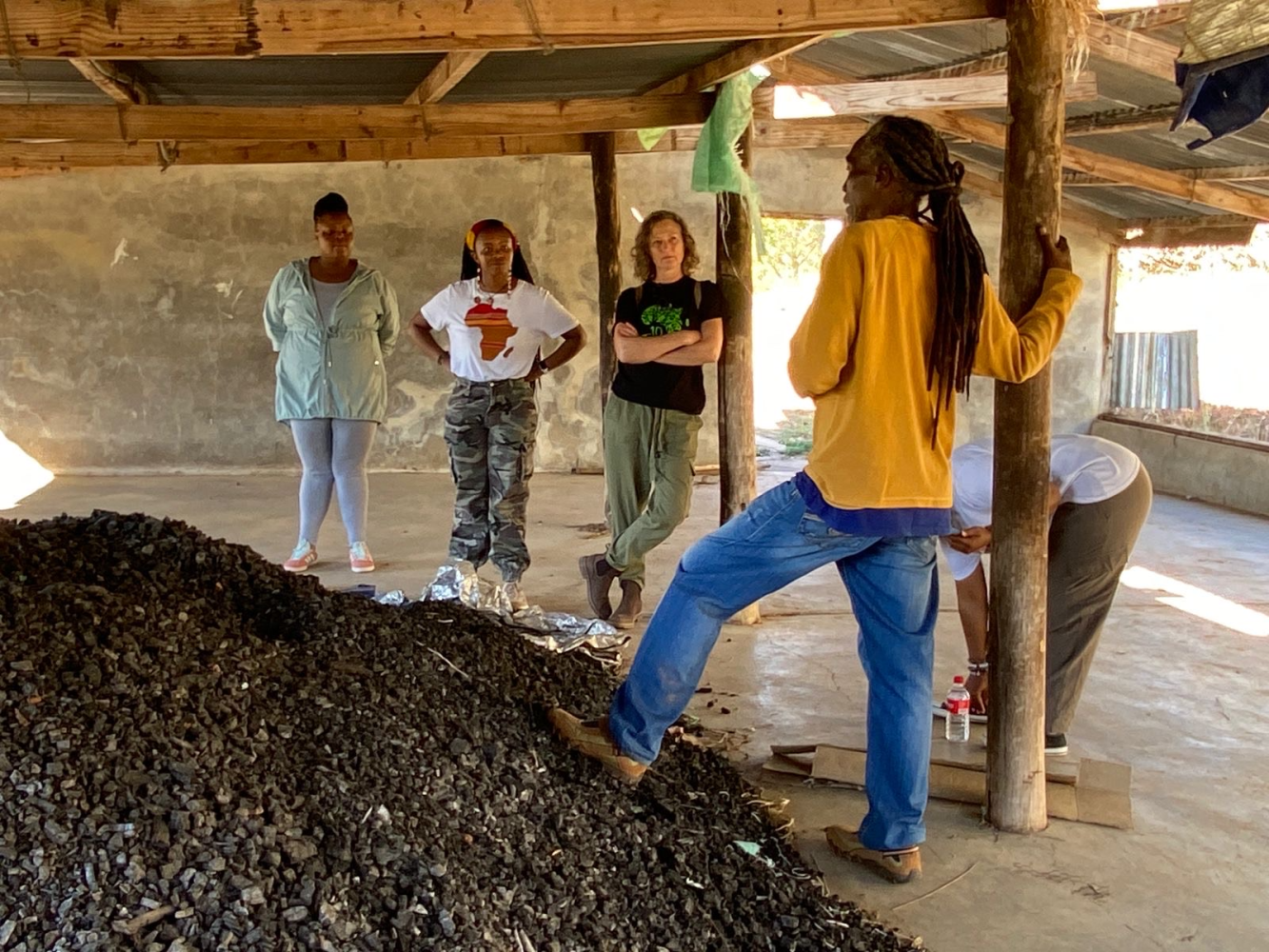
While team members scoped the land for agro-forestry, December pointed to former sites of medicinal plants and trees. “We used to eat the bulbs of these plants with my grandmother who lived nearby,” he recalled, listing the ailments these natural remedies would treat. December will often poke fun at himself for talking a lot. But his stories are never didactic or preachy. Instead, they are rich sermons full of insight, warmth, honesty, humour, and an ancestral wisdom carried along lineages fractured by South Africa's painful history of conquest, extraction, and dispossession. His encyclopaedic knowledge of indigenous medicine has guided the mentoring of young Bushbuckridge residents through propagation workshops sponsored by the Environmental Monitoring Group (EMG). The most recent session took place at Ratanang on June 16, which falls on Youth Day in South Africa.
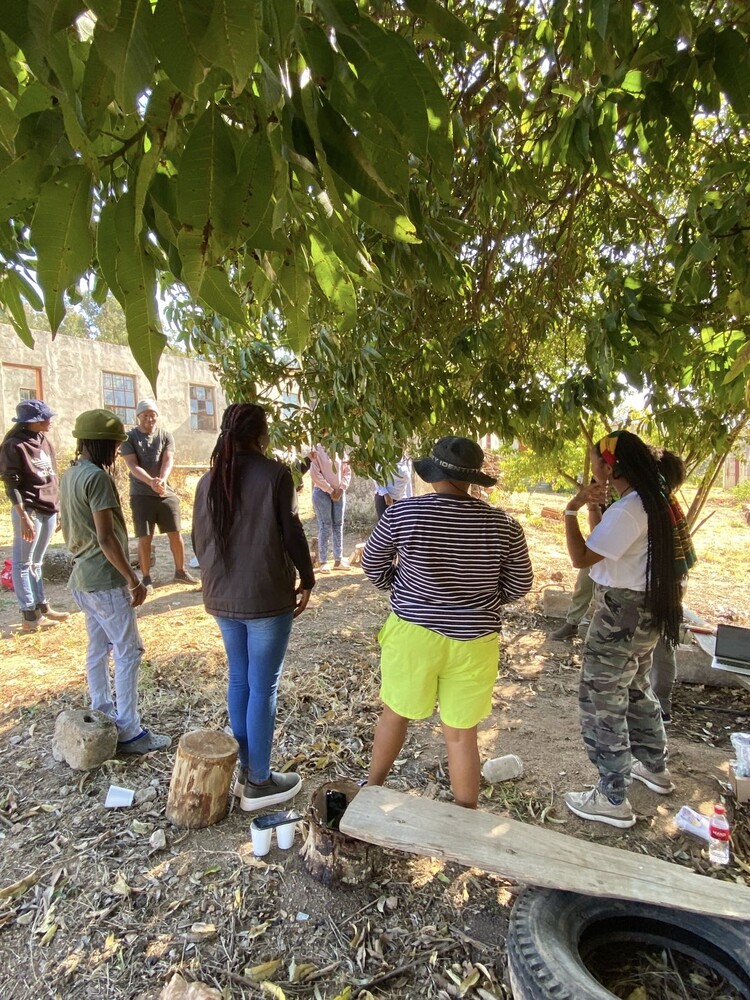
Plans are underway to establish a medicinal nursery on the farm to catalyse the regrowth of endangered herbs and trees, and encourage the inheritance of traditional practices across generations.
Later on, we held an informal convening under the tree with the young people, a couple of whom have been mobilising under the Biome Youth Fellowship since our in-person activation last year. We listened to stories of resilience and innovation, some of which involved young farmers partnering with the government through the Social Employment Fund (SEF) to employ young people in Bushbuckridge, leasing farms to bring their produce to market, and selling to major retailers like SPAR South Africa. One young woman farmer shared the uphill battle of purchasing land, accessing funding, and being taken seriously in the agricultural sector. Her story reflected how race, class, age, and gender shape lived experience the realities of young people in this country, often invisibly and unjustly.
It was a powerful example of our role as the connective tissue, capable of holding the lived experiences of young people, particularly those facing intersecting oppressions, with care and tenderness.
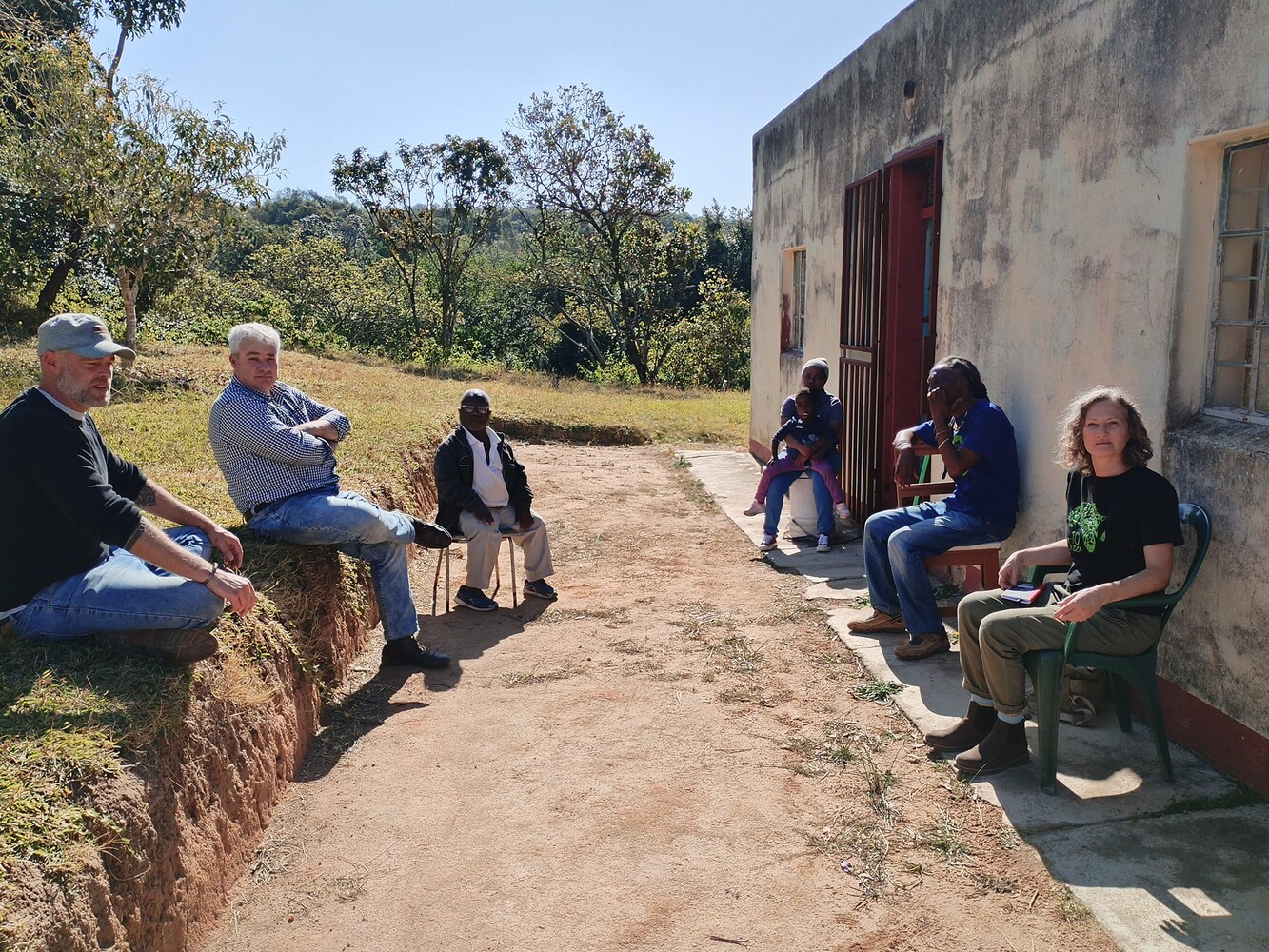
In a world where the plight of the youth, particularly in the Global South, is ignored by the powers that be, it is important for us to stand in solidarity and allyship with the generation of tomorrow. Despite these difficult realities, we also saw a kindness within this cohort, evident in their desire to lift one another up, and tackle the hardships facing their community. We ended the session with a series of re-energising ice breakers and a shared basket of bananas grown in the garden of Karabo Mabuza, an active member of the Youth Fellowship.
As the sun slid further down the horizon, we wrapped up the day with a picnic on the grass, enjoying the leftovers from the lunch prepared the day before by Suzan Mashego, Community Liaison at Zingela Ulwazi Trust (ZU). In this homely setting, we dished out full plates of food for one another and reflected on what we learnt from the day, all while pretending as if we weren't vying for the last bit of Suzan’s delicious morogo! These trips out in the field give us an opportunity to connect with our partners working on the ground. But they also provide us moments to reconnect as a team that works remotely.
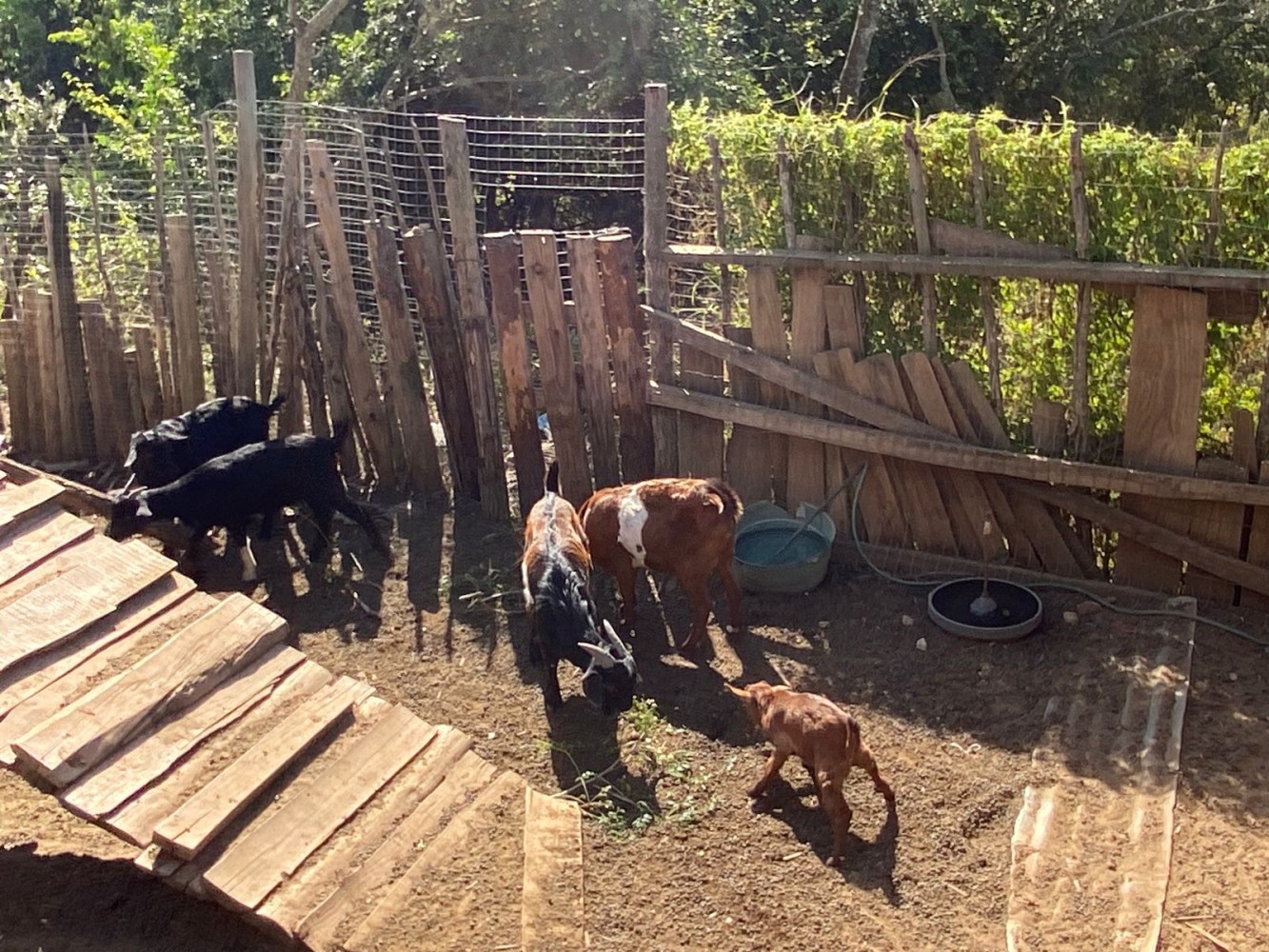
Occasionally, we can forget the human behind the virtual screen. Technology can obscure their quirks, habits, values, and stories, all of which have been forged through a unique personal and ancestral history. While these details can be eclipsed by the deliverables and deadlines necessary for us to be aligned with our goals and objectives, we know that true collaboration requires us to be relationality with one another as we tune into the laws of Nature.
The work of December reminds us that relationship-building is not just part of this work.
Often times, it is the work.
